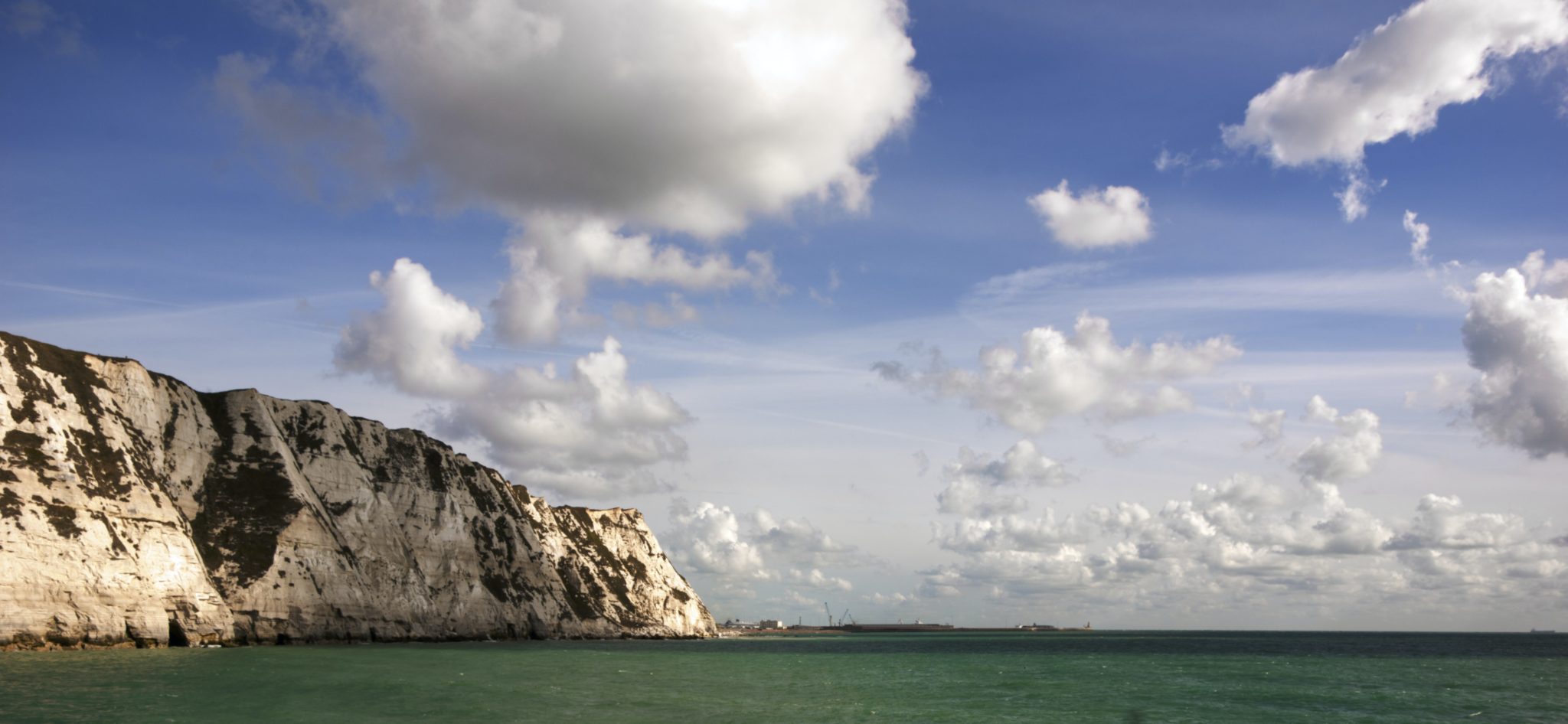Two friends walk to Dover Beach, talking about the failings of modern society. One comments:
The sea is calm tonight.
The tide is full, the moon lies fair
Upon the straits; on the French coast the light
Gleams and is gone; the cliffs of England stand,
Glimmering and vast, out in the tranquil bay.
Come to the window, sweet is the night-air!
Only, from the long line of spray
Where the sea meets the moon-blanched land,
Listen! you hear the grating roar
Of pebbles which the waves draw back, and fling,
At their return, up the high strand,
Begin, and cease, and then again begin,
With tremulous cadence slow, and bring
The eternal note of sadness in.
Sophocles long ago
Heard it on the Ægean, and it brought
Into his mind the turbid ebb and flow
Of human misery; we
Find also in the sound a thought,
Hearing it by this distant northern sea.
The Sea of Faith
Was once, too, at the full, and round earth’s shore
Lay like the folds of a bright girdle furled.
But now I only hear
Its melancholy, long, withdrawing roar,
Retreating, to the breath
Of the night-wind, down the vast edges drear
And naked shingles of the world.
Ah, love, let us be true
To one another! for the world, which seems
To lie before us like a land of dreams,
So various, so beautiful, so new,
Hath really neither joy, nor love, nor light,
Nor certitude, nor peace, nor help for pain;
And we are here as on a darkling plain
Swept with confused alarms of struggle and flight,
Where ignorant armies clash by night.
(Dover Beach, by Matthew Arnold)
A stranger joins them, and asks why are they so glum?
The friends explain to the stranger that through the technological wonders of our age, the glories of our civilization, and the strength of our culture, we believed we’d bring peace through war, intimacy through sexual revolution, connection through social media, wealth through debt, and liberation through control.
But it’s all left us empty. It has made us, if anything, inhuman.
The stranger laughed at our narratives:
“Foolish and slow of heart!” he cries. “Don’t you know what God has said?”
The friends looked at him in silence.
He explains that God created the world wisely and has acted in the world to create a truly human people.
And that God came to live as a truly human person.
And that through his death, burial and resurrection, he dealt with evil once and for all!
And even now he is at work, by his spirit, to create a new family, truly human, in which repentance and forgiveness of sins challenge and overturn the rule of war, sex, money and power.
They arrive at the cliffs, and the friends stop, gazing anew at them. The stranger continues on.
“Wait. We’re having a picnic. Won’t you join us? And tell us more? Teach us about this new narrative? And how we can participate in God’s story?”
To learn what happened next, read Luke 24:13-35.
Sources:
Adapted from N.T. Wright, “Walking the Road to Emmeus in a Postmodern World,” The New Testament in its World, 2019, 332-333.
Photo by Vincent Wright on Unsplash


Leave a Reply